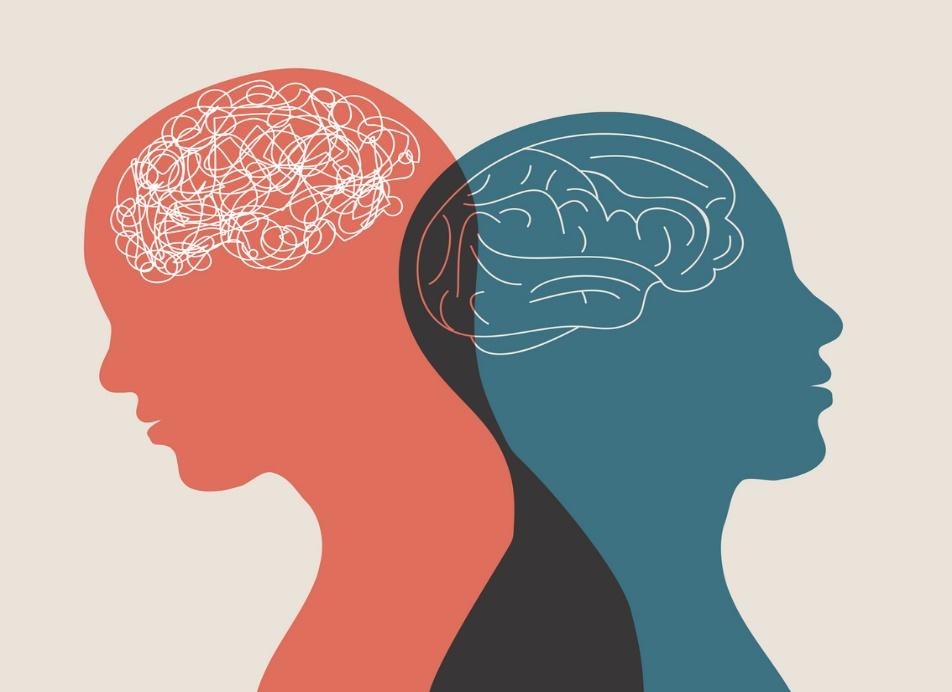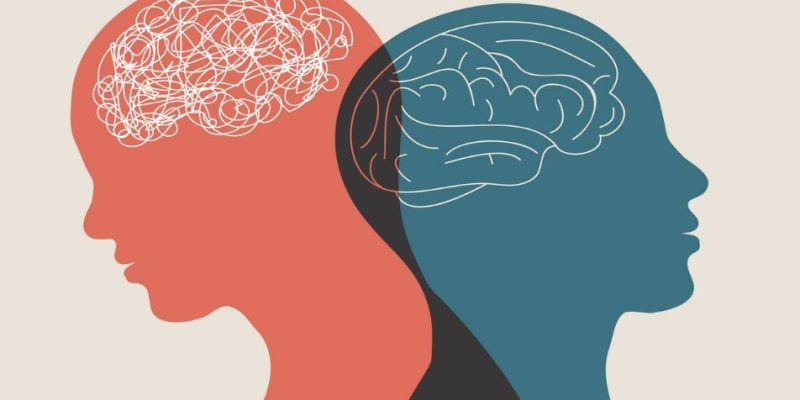In today’s turbulent times, mental healthcare is becoming an ever-increasing requirement. The incidences of mental illness are set to reach crisis proportions in healthcare institutions and governmental health departments around the world.
Studies conducted in 2021 by the Substance Abuse and Mental Health Services Administration estimate that more than one in five US adults are living with mental illness in some form.
In 2021 there was still much uncertainty around the COVID-19 pandemic, and many Americans had lost loved ones, lost their income, or both.
It is not surprising, therefore, that the mental health figures quoted would be high, and hopefully future surveys will show a decline in numbers. However, the statistics for mental illness were escalating even before the advent of the COVID-19 pandemic.
Research shows that a large proportion of patient visits to primary care clinics involve psychosocial concerns. This has identified a need to incorporate mental healthcare into primary care practice for a more holistic approach to illness and improved patient outcomes.
As in other areas of the healthcare sector, mental health professionals are not coping with the vast number of cases being reported. The move to online consultations during the COVID-19 pandemic has made a difference for many people, both practitioners and patients, as the logistics of getting help has become a lot easier.
However, mental health practitioners continue to battle with their workloads, and the shortage of practitioners is set to worsen in the next 10 years.
Advances in medical technology in the last few decades have meant that people are living longer. This, combined with the decreased birth rate in the US, means that our population is aging.
People over 65 start accessing healthcare services more frequently, and by 75, most people have two or more chronic ailments that need medical intervention. This places our medical profession under pressure as the number of medical graduates’ decreases.
Mental health professionals are included in these statistics. Mental illness is on the rise as people deal with unemployment and poverty, substance abuse, the ravages of the COVID-19 pandemic, and more.

Social workers, psychiatrists, and psychologists are placed under strain as they endeavor to meet the needs of the people.
What is mental health?
Mental health involves emotional and psychological wellbeing, thoughts and actions, beliefs, and how humans behave socially. Definitions of mental health can change depending on culture and ethnic settings, as values and standards change.
This sometimes makes it difficult for psychologists or social workers to offer advice when they are not familiar with the culture.
Also Read: How an Advanced Nurse Program Can be Beneficial for a Healthcare Worker?
Poor physical health affects patients’ mental health
People with physical illnesses often become depressed. As an example, a diagnosis of cancer or Alzheimer’s disease often leads to severe depression, and this in turn leads to other conditions. It is a downward spiral if not taken care of in time.
Chronic pain, as in pain that lasts for three months or more, can lead to anxiety or depression and the overuse of pain medications.
Pain in a particular area of the body tends to restrict movement, and this leads to other issues if not dealt with promptly. Being unable to carry out standard daily tasks can quite easily lead to depression.
Poor mental health affects patients physically
Conversely, people with mental health issues often become physically ill as a direct result of their mental problems. Medications administered to treat mental illness can have side effects; depression and anxiety cause stomach aches and diarrhea in some patients and, in others, can lead to heart disease and strokes.
Mental health patients often neglect their physical health and go into decline. Anxiety causes muscle tension, which in turn can lead to numerous physical ailments.
Mental health patients receive the medication they need for their problem, but follow-up support is not always available. If they are left to fend for themselves, they are less likely to make a full recovery.
Severe mental illness will eventually lead to physical problems unless there are supportive family members or friends to take care of them.
It often takes the intervention of a nurse practitioner to organize family members to help, or to refer patients to an institution for care.
Causes of mental illness
There are numerous factors that can have an adverse effect on mental health. Biological factors such as genetics, brain injury, problems during birth, exposure to toxins, or substance abuse all contribute to mental health problems.
Chemical imbalances in the brain also manifest in mental problems but can usually be brought under control with medication. Examples of this are depression and bipolar disorder.
Bad childhood experiences are a common factor in mental illness and, if not treated, often result in an ongoing manifestation of the same problem for the person’s offspring.
Substance abuse is an ongoing problem in society today and is often used as an aid to mask or forget other prevailing mental or physical issues that the patient may be battling with.
Chronic illness or injury can cause feelings of hopelessness, particularly in elderly patients, and can lead to depression. With older people developing chronic illnesses as they age, their future often appears quite bleak.
People may simply be very lonely. The loss of a partner or parent, or having children move far away is a sad part of life, and people often have difficulty coping in these situations, particularly if it has left them alone.
Nurse practitioners and mental health
Nurse practitioners (NPs) conduct first-line examinations on patients, ascertaining their medical history and doing physical examinations. They prescribe medicines, send patients for further tests, or refer them to primary care physicians or specialists when necessary.
NPs are trained to identify underlying mental issues as they go about the process of conducting physical examinations. They learn to ask the right questions to ascertain whether there is more going on than just the symptoms presented.
It may be something the patient says, markings on the patient’s body such as bruises, or skin punctures typical of frequent use of syringes. Often, the nature of the problem being presented gives an indication of something else going on.
Examples of this are stomach ulcers and heart conditions that are often caused by anxiety, or a skin condition that is a result of malnourishment.
In less severe cases, NPs treat anxiety and depression by prescribing medication. In dealing with more severe cases, the NP provides the patient with essential support in the interim while professional help is arranged for specialized treatment.
NPs also provide patients with helpful advice on how to care for themselves, teaching them the importance of taking their medication and maintaining good lifestyle habits as part of a successful recovery.
Mental health in families
Family nurse practitioners (FNPs) are specialized in dealing with family healthcare. From childhood diseases to assisting pregnant mothers, or helping elderly patients manage their chronic diseases, the FNP handles it all.
Therefore, it is natural for FNPs to come across mental health issues from time to time. The first line of support should be the family, and the aim of the FNP is to educate the family on understanding the problem, how to cope with it, and how to provide support.
A simple course of anti-depressants may sort the problem out, as may a referral to a psychiatric professional or clinic. If the FNP identifies physical or substance abuse, it may be time to call in a social worker to deal with the problems.
Mental health in communities
In communities, nurses and FNPs, take care of people in need. They provide primary healthcare facilities, and as they identify other needs, they may even establish a community center, or children’s day care center, run by community members.
Community centers encourage the participation of individuals in the community, bringing them together by providing activities, teaching them lifestyle skills that can nurture mental health such as growing vegetables, and generally improving the quality of life.
Nurses build up a network of aid organizations, referring people in need to organizations that assist with donations of clothing, food, and housing. They may conduct follow-up examinations or refer patients to a social worker for counseling.
Mental healthcare for elderly and physically disabled patients
For adult-gerontology nurse practitioners (AGNPs) based in homes for the elderly or physically disabled, mental health issues are an accepted part of life. Patients in these situations tend to lose hope as they realize that their chances of leading a normal life again have diminished and feelings of depression set in.
Unless they can retain their dignity and sense of being valued, their mental health deteriorates. AGNPs refer their patients to psychiatric practitioners for specialized care in extreme cases but are usually able to manage their elderly patients by administering medications for anxiety and depression.
A more holistic approach to mental healthcare in nursing homes involves the introduction of activities, games, and music, to stimulate their patients’ minds and give them a sense of belonging. Encouraging some form of exercise, such as yoga or Pilates, keeps patients healthy and less likely to develop mental issues.
Happy patients are easier to manage, and the need for interventions such as anti-depressants and sleeping medications is also lessened.
Nurse practitioners who specialize in mental health care
Nurses who have compassion for patients who are dealing with mental health issues or substance abuse can take their profession one step further with a master’s degree in Psychiatric Mental Health Nurse Practitioner (PMHNP).
For anyone who is considering the next step in a nursing career, there are numerous nurse practitioner specializations that offer a professional nursing status that is both satisfying and rewarding.
The course at Marymount University is designed to help registered nurses attain the master’s degree in PMHNP in just over two years when completed part-time. This allows nurses to continue their professional and personal commitments while studying too.
Children and adolescents
In view of the increased number of child and adolescent suicides and substance abuse, psychiatric mental health nurses need to offer more advanced levels of mental healthcare to young patients.
An article on the role of psychiatric mental health nurses in mental healthcare for children and adolescents highlights the urgent need for strong leadership and a more active role by PMHNP nurses in this field.
Based on study data, between 13% and 20% of children have been diagnosed with mental health disorders over the two decades prior to 2020, with suicide being the second-highest cause of death in people between the ages of 10 and 34. Self-inflicted, non-fatal injuries in that age group are also on the rise.
Early developmental stages in children dictate behavior and wellbeing in later life, and disruptions in these early stages can have detrimental results, impacting the child, those around them, and possibly society in years to come.
The sad fact is that many mental problems in children go unchecked and untreated.
The article suggests that the role of nurse practitioners in healthcare should not mimic that of psychiatric care, but rather develop a unique framework based on the primary mental health requirements of the population.
Also Read: Ways Nurses Can Make Good Use Of Their Time
A brighter future for all
As nurse practitioners gain experience in the field of mental illness, their interventions and recommendations are of immense value in alleviating the pressure placed on healthcare and mental healthcare professionals.
Diagnosis and intervention in the early stages of mental illness alleviate much heartache and suffering further down the line. The role that dedicated and caring PMHNPs play is vital for taking control of the situation and beginning to turn it around.




